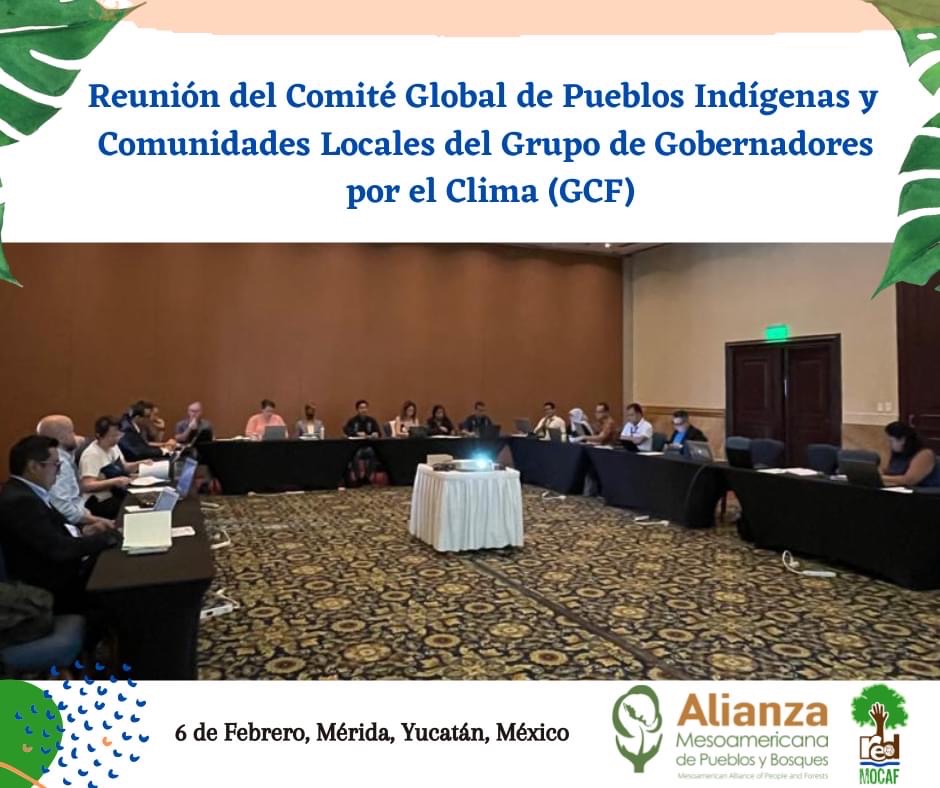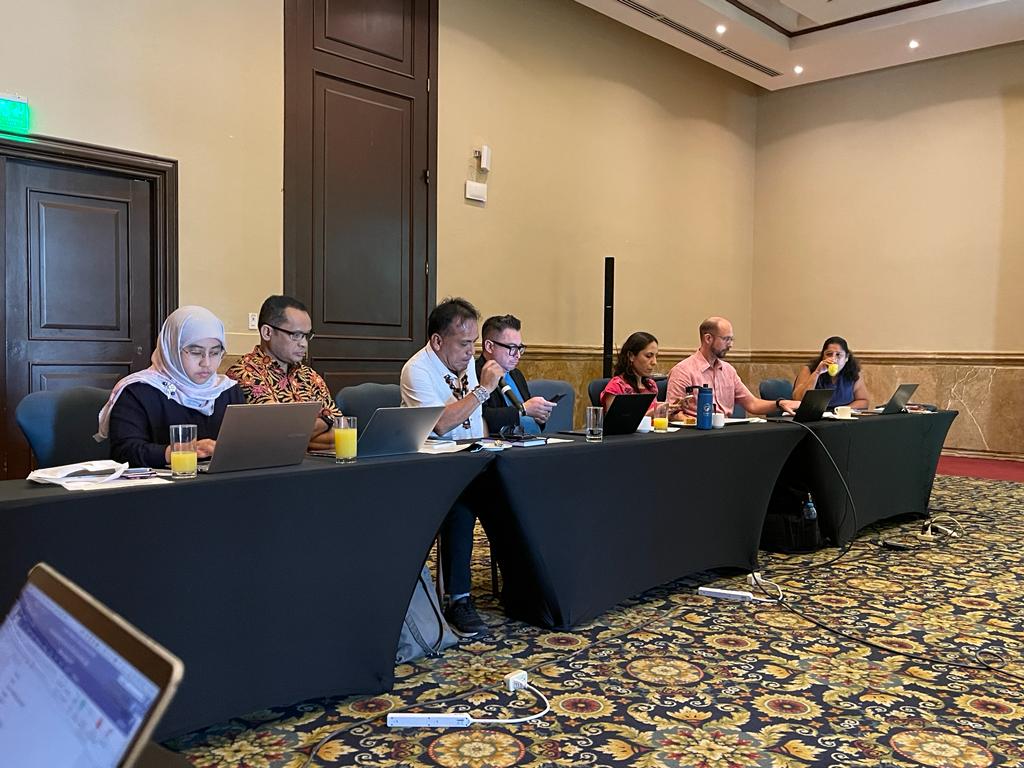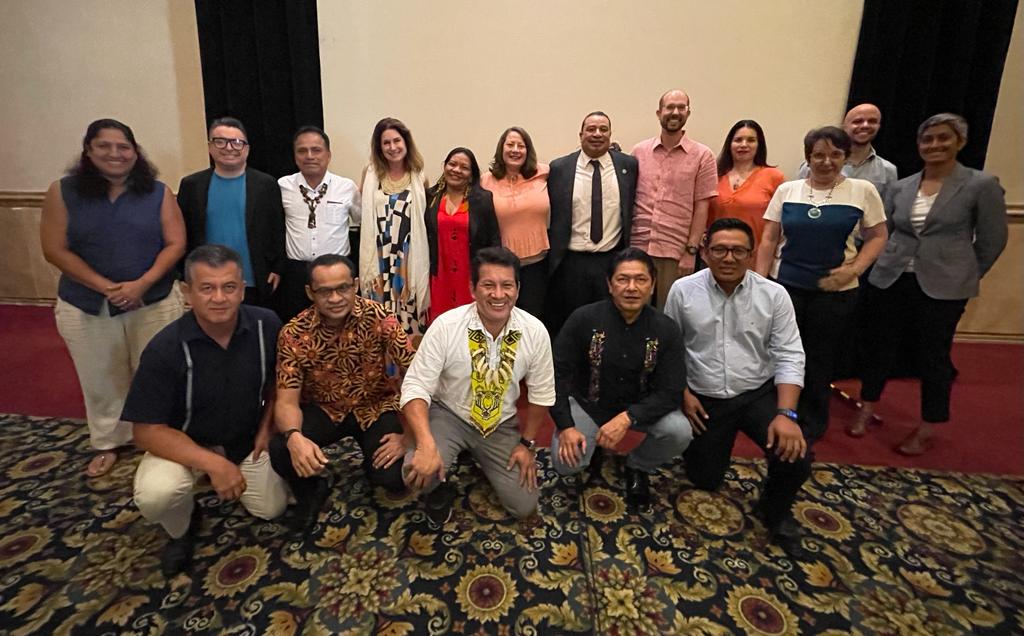The 13th Annual Meeting of the GCF Task Force started with two days of closed business sessions. On Monday, February 6, the Global Committee for Indigenous Peoples and Local Communities met in the morning session. The Committee was formed to strengthen partnerships between subnational governments and Indigenous Peoples’ and local community-level leaders, and to help ensure effective implementation of the GCF Task Force’s Guiding Principles for Collaboration and Partnership Between Subnational Governments, Indigenous Peoples and Local Communities across our member states and provinces.
The Global Committee is made up of representatives of Indigenous and local communities from Brazil, Indonesia, Mexico, Peru, and California, as well as GCF Task Force government representatives from these same countries and representatives of global organizations including the Alianza Mesoamericana de Pueblos y Bosques (AMPB) and the Coordinadora de las Organizaciones Indigenas de la Cuenca Amazonica (COICA).
During today’s meeting, governmental representatives from Brazil, Indonesia, and California, along with Indigenous Peoples representatives from Peru and the Yurok Tribe, joined with AMPB representatives from Mexico and Panama, GCF Task Force staff, and several partners to discuss the current status of the Committee, next steps on governance and membership, as well as innovative financing mechanisms. With the recent elections in Brazil, Peru, and changes in Mexico, this meeting provided an important touch base on how new Committee members from each of its representation categories will be appointed, and to discuss the following framing questions: “What does success look like in the next two years?”

At the conclusion of the meeting, those present agreed that each of the governments – Brazil, Indonesia, Mexico, and Peru – would appoint its representatives to the Committee within the next 3 months. The same date was selected for representation from regional Indigenous and local community committees in each of these countries and for the global organizations.
The Committee also received a briefing from one of our meeting sponsors – the Architecture for REDD+ Transactions (ART) Secretariat – on “beyond carbon” efforts underway regarding the jurisdictional carbon market TREES standard.

In addition, Committee members will continue working with the Climate and Land Use Alliance to finalize a first-ever grant to the Global Committee that will help it conduct case studies on best practices for implementing the Guiding Principles in three pilot jurisdictions (Acre, Jalisco, and Ucayali), develop a sustainable financing strategy, and move forward in its efforts to strengthen its ability to support and advance Indigenous Peoples and local community voices and efforts globally and within the GCF Task Force jurisdictions.

